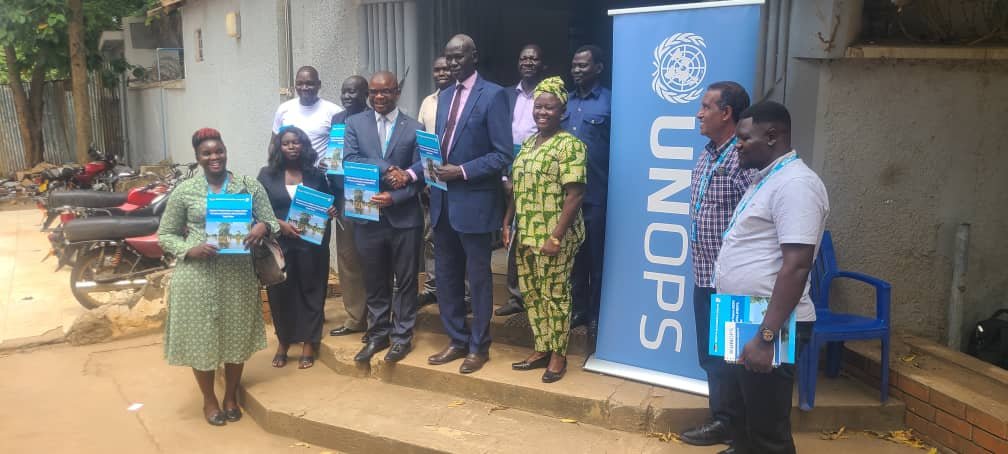By Jenifer James
The Ministry of Water Resources and Irrigation on Friday signed a $299 million agreement with UNOPs to supply flood emergency response goods and commodities to affected communities.
During a press conference, the Undersecretary of the Ministry, Peter Mahal Dhieu Akat, emphasized the importance of this partnership, which dates back to 2011-2012 when they collaborated on a multi-donor trust fund. “Our efforts have primarily concentrated on western Victoria, and today’s contract is especially vital,” he stated.
Peter highlighted that the funding aims to alleviate the devastating impacts of natural disasters. “Our communities are currently dealing with severe flooding, a situation we had anticipated and warned about, affecting their safety, property, livestock, and farms. Tragically, 38 out of our 79 counties are now impacted.”
He reiterated the government’s commitment to supporting those affected. “The Ministry of Humanitarian Affairs is coordinating closely with UN agencies and international organizations to aid the flood-impacted populations. We urge UNOPS to expedite their response, as the floods have severely damaged farmland and increased hardships. The anticipated rains may worsen these conditions. We appreciate your team’s expertise and collaboration with our engineers to ensure that assistance reaches those in need.”
Peter stressed the urgency of the situation, stating that timely delivery of materials is crucial. “With your experience and our long-standing partnership, we are confident in our ability to protect lives and livelihoods. Although this contract may seem small, its impact will be significant for those in need. We must also find ways to assist additional affected populations, focusing on the most vulnerable, particularly women and children.”
Leslie Mhara, UNOPS Program Coordinator, acknowledged the agreement as a pivotal moment in the ongoing partnership with the South Sudanese government, specifically the Ministry of Water Resources and Irrigation. “UNOPS is dedicated to ensuring quality and sustainable procurement and infrastructure investment,” he noted, especially in the context of climate change, which has already impacted over 50% of counties and 700,000 households in South Sudan.
Leslie stated, “Our strategy must be to hope for the best for the people of South Sudan while preparing for the worst. Today’s partnership reflects our commitment to implementing measures that mitigate the effects of unforeseen events.” He underscored the importance of this procurement agreement as a key component of UNOPS’s mandate for sustainable procurement under the Regional Climate Resilient Project for East and Southern Africa.
Highlighting recent successful collaborations, Leslie mentioned procuring three vehicles in June and completing the Enhanced Community Resilience and Local Governance Project in July, which established 258 water points. “Together, we are laying the groundwork for a more resilient future for South Sudan,” he concluded.



